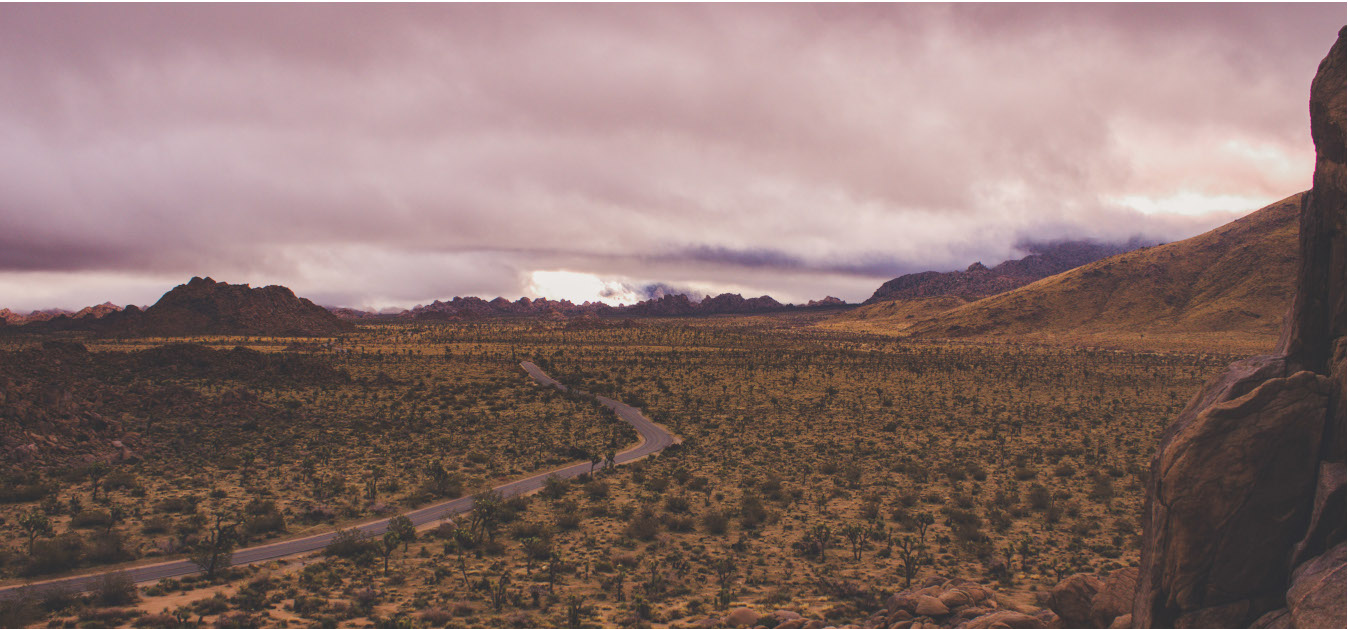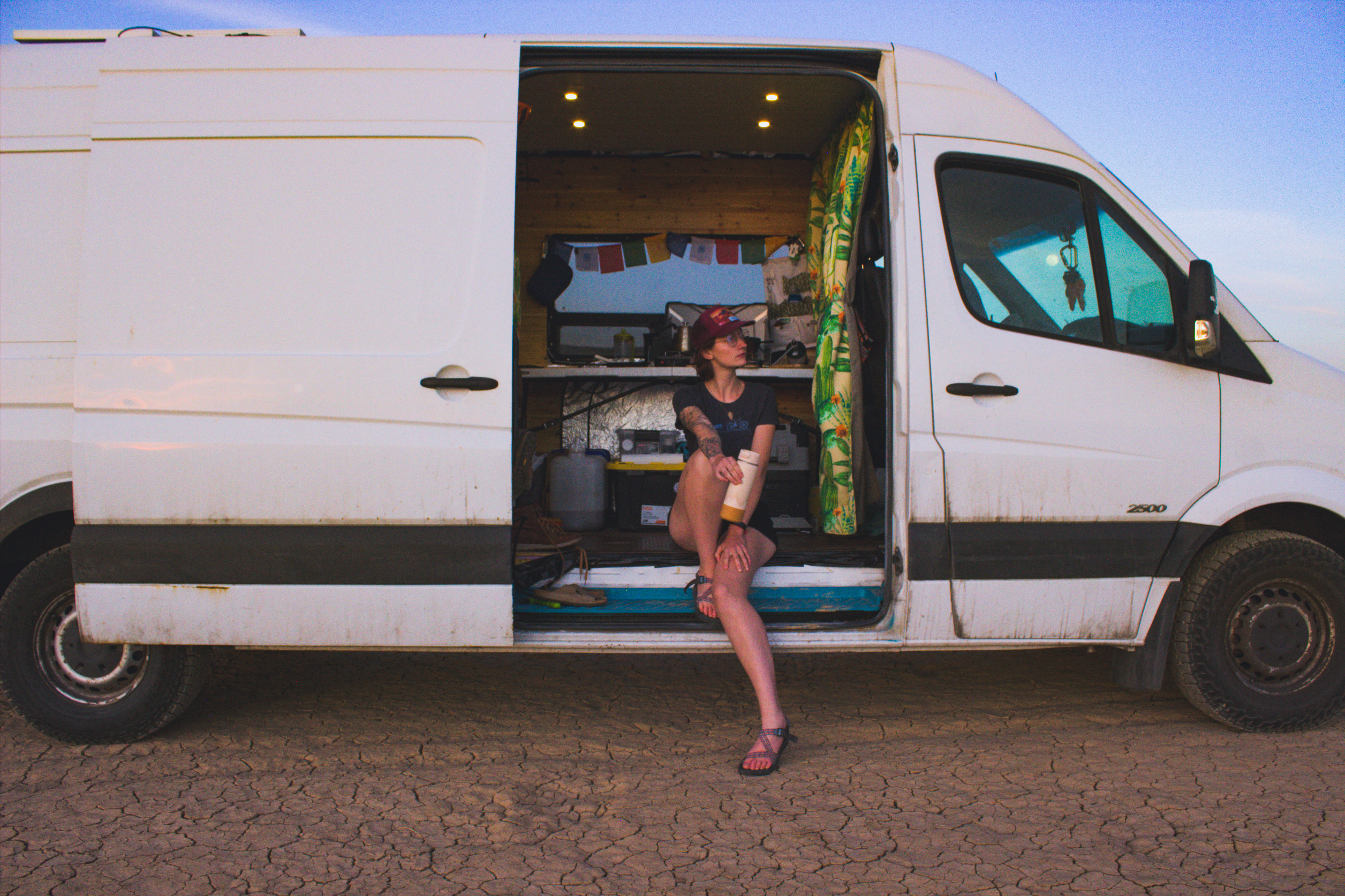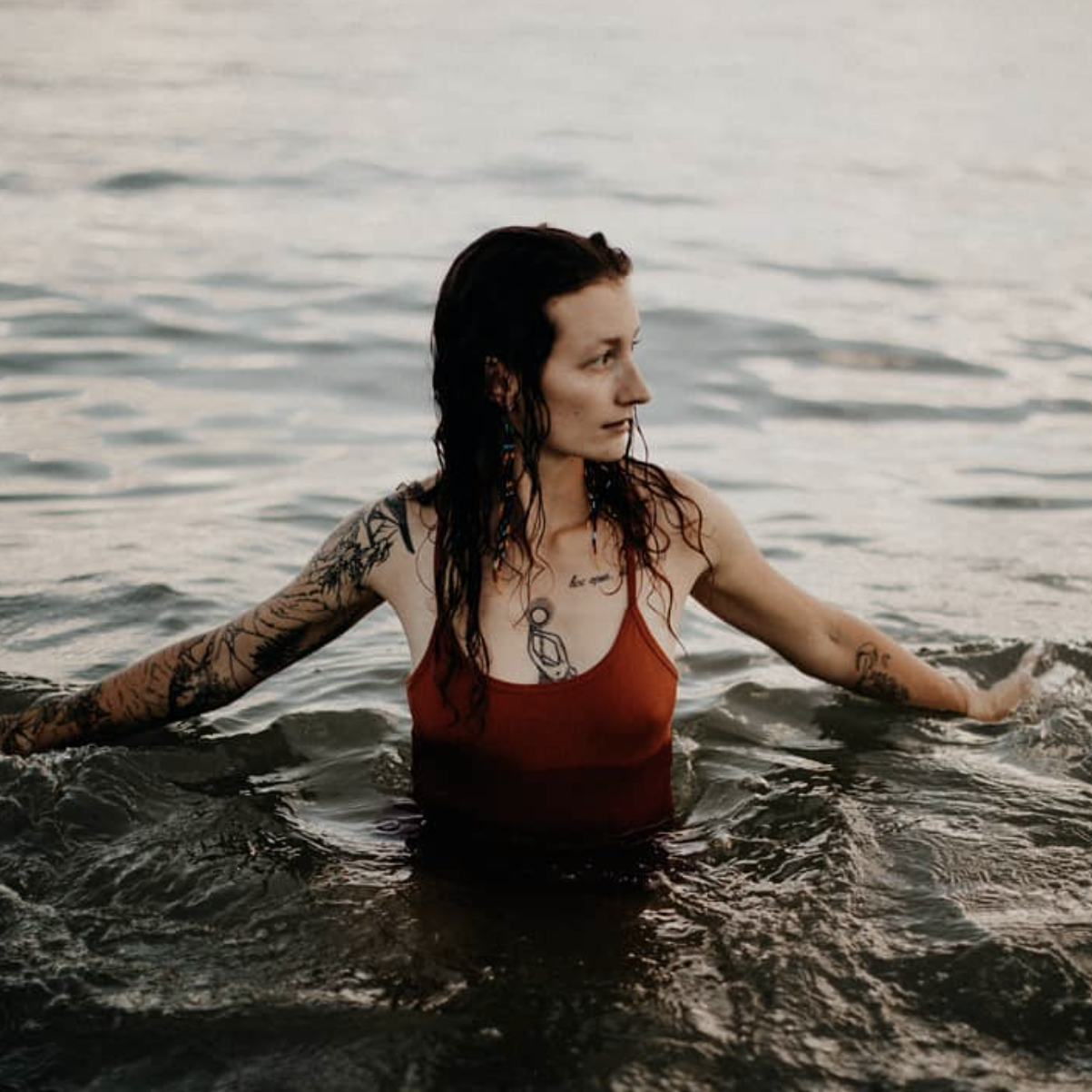The Dirtbag Professional Vol. 1
The Journey to Abbey-esque Moderate Extremism

There’s a quote from a conversation I had with my dad about five years ago that sticks with me.
“All I ask is that you don’t end up an old, broke dirtbag.”
To a lot of you--if you didn’t grow up in the sun-soaked western U.S.--that probably sounds like a harsh statement. I promise you, it’s not.
See, I’m the product of an almost commune-style upbringing. After my mother died when I was five, I went to live with my father, who--overwhelmed by the idea of raising his young daughter alone--leaned heavily on the support of a radical, raucous community of whitewater raft guides in southern Colorado.
Dirtbags, through and through. The kind that literally lived in vans and buses down by the river, who counted the whitewater-drenched trips they ran each day as “showering,” and who, in a lot of ways, were still kids themselves.
When it comes down to it, I can count the number of traditional people--that is, folks who had 9 to 5 jobs and a 10-year plan--that hung around when I was growing up on one hand. The stories and advice that swirled around my curly-haired head for the first 15 years of my life were filled less with admiration of climbing the corporate ladder, and more with practical tips for burning it down. It was preached by the kind of people who prided themselves in all the traditional, straight-edge jobs they’d lost in the pursuit of big water, wild nights under desert stars, and deep powder in the Colorado Rockies.

I didn’t know this wasn’t how most people were brought up. To me, it was normal to run wild with your friends unsupervised throughout town from a young age, barreling full speed on bikes down to the boat ramp for a daily baptism in the cold water, and talking about how you were going to be a dirtbag just like your mom or dad someday. It was exciting to stay over at your friends’ houses for the two weeks your dad was gone running boats down the Grand Canyon.
I didn’t know it was extreme from the beginning.
Really, it wouldn’t be for another eight years--after oscillating wildly between the other outer edges of society--that I’d get a real appreciation for my unconventional childhood.

At 15, I had scored myself a full-ride scholarship to a private school in Kent, Conn. While I was desperate to get out of my 3,500-person small mountain hometown, I honestly didn’t know what I was signing up for. Over the course of three months, I went from finding out the school existed to putting on my first pair of slacks for on-campus interviews to moving across the country alone to the small New England town I’d call home for three years. I had traded an education among river rats and ranchers for a class schedule filled with Ivy League legacies in training that summered in the Hamptons.
I had always known I was weird, an outlier, but it wasn’t until I went to private school that I realized exactly how much that was true.
For the first two years, I told myself I wanted nothing more than to join the ranks of this new culture I found myself in. But I could never quite convince anyone--myself included--that I belonged. By my senior year, while my peers were planning their moves to Cornell, Yale, and Harvard, I was sitting in the corner of lounges watching Warren Miller ski flicks and counting down the days until I moved back west to study journalism at Colorado State University in Fort Collins, Colo.

It’s worth noting that when I moved back to Colo., it would be about four years before I really gave in to the call of the wild I saw in those ski movies. During my last year of high school, I had started dating a guy who wasn’t outdoorsy in the least and came from a pretty stable, normal military family. Conventional by all accounts, which was a kind of teenage rebellion when you come from a community of Woodstock-era hippies.
We stayed together all throughout my college years and landed jobs at the same northern Colorado paper after I graduated, each making up half of a two-person newsroom.
For a while, I was content to spend my days telling the untold stories of people in our community and covering politics, healthcare, and business. Truthfully, I adore print journalism and lament the treatment it gets in today’s borderline anti-intellectual mainstream.
But by 22--a year out of college and right in the middle of the disintegration of my five-year relationship--I was antsy. I had started driving in Subaru three hours away on work nights to camp and get away from my home situation and was struggling to marry my desire for nomadic travel with the unforgiving vacation policy of a small newspaper.

I had picked up climbing--mostly indoor bouldering--a few months prior as a coping mechanism and stress outlet and had quickly become obsessed. I spent my lunch breaks watching YouTube videos about technique, browsing the REI website, and getting teary-eyed watching climbing documentaries.
I ached for the kind of adrenaline-fueled lifestyle that it was reintroducing me to, seven years after my original move out of state. So, amid a storm of anxiety and drama and discomfort, I decided to--like many journalists before me--go the “dark side” (AKA marketing), which promised better flexibility and higher pay for my trip tick list.
Before I started my first PR gig as a marketing specialist for a large lobbying firm--about as opposite of a job as you can take from a political journalist--I took a solo trip to Telluride, Colo. There, I slept in my car for two weeks, getting my ass whipped by the easiest of outdoor bouldering problems, and soaking in my first dirtbag adventure in nearly a decade.
From that first trip, I was sold, and it was a slippery slope from somewhat shower-avoidant weekend warrior to full-blown dirtbag and digital nomad.
I only lasted about a year at my corporate gig. While it afforded me many trips to REI for the next N+1 piece of gear, I realized I wasn’t happy with doing a job I didn’t love, even if it fueled my other passions well. This realization would cause a fair amount of existential angst over the next two years as I tried to reconcile my interest in the outdoors with my love of technology, academia, and non-outdoor pursuits.
How on earth was I going to find and build a stable career that let me write and allowed me the flexibility to travel full time? It was like looking for a Patagonia-clad unicorn.
At peak existential angst in 2017, I did what I do best: over examine and over plan what I want my next steps to be. Note: as we get to know each other better, you’ll learn that rarely does this go to plan, but it’s a fun thought exercise at least.
I decided I would return to my hippie roots and buy a 2008 Sprinter van (the kind you see all over the #vanlife Instagrams) and build it out myself into a camper. Mind you, I had next to no manual labor experience aside from taking care of horses, so this was half baked, but just full tilt enough to work. I also resolved to start looking for ways to work remotely, ideally full-time, to secure some semblance of earning stability.

For the next two years, these goals became my main focus. And, in mid-2018, it paid off. Only days before the end of my lease, I put the last screws of the conversion in place with the help of my current partner, Clayton, and loaded the van up. I had secured a remote position as a content marketer for B2B SaaS companies six months before and was ready to go.
Since then, life has been pretty wild. An extreme mix of amazing things--moving my partner’s and my home base to western CO, traveling solo on the road, getting a dog, and advancing my career and knowledge--with truly challenging times, including a few dramatic health episodes for both my father and myself.
When I look back at where I was eight, five, and even two years ago, it’s like trying to make out a treeline at dusk across a 10-mile wide chasm. It almost feels like I’m making it all up.

Somehow, the magic of my life today is more believable, and in many ways more consistent, if only because all my extremes today balance each other out.
I’ve found a way to pursue a demanding-full time career in tech marketing and writing; trips to Moab, Joshua Tree, Jackson Hole, and anywhere else that lights me up; and a fulfilling relationship with my partner (who you’ll hear about later on).
The best way to sum this up is “moderate extremism” a concept that stuck with me when I--like many aspiring desert rats--read Ed Abbey’s Desert Solitaire a few years back.
“Balance, that’s the secret,” Abbey tells the reader. “Moderate extremism. The best of both worlds.”

